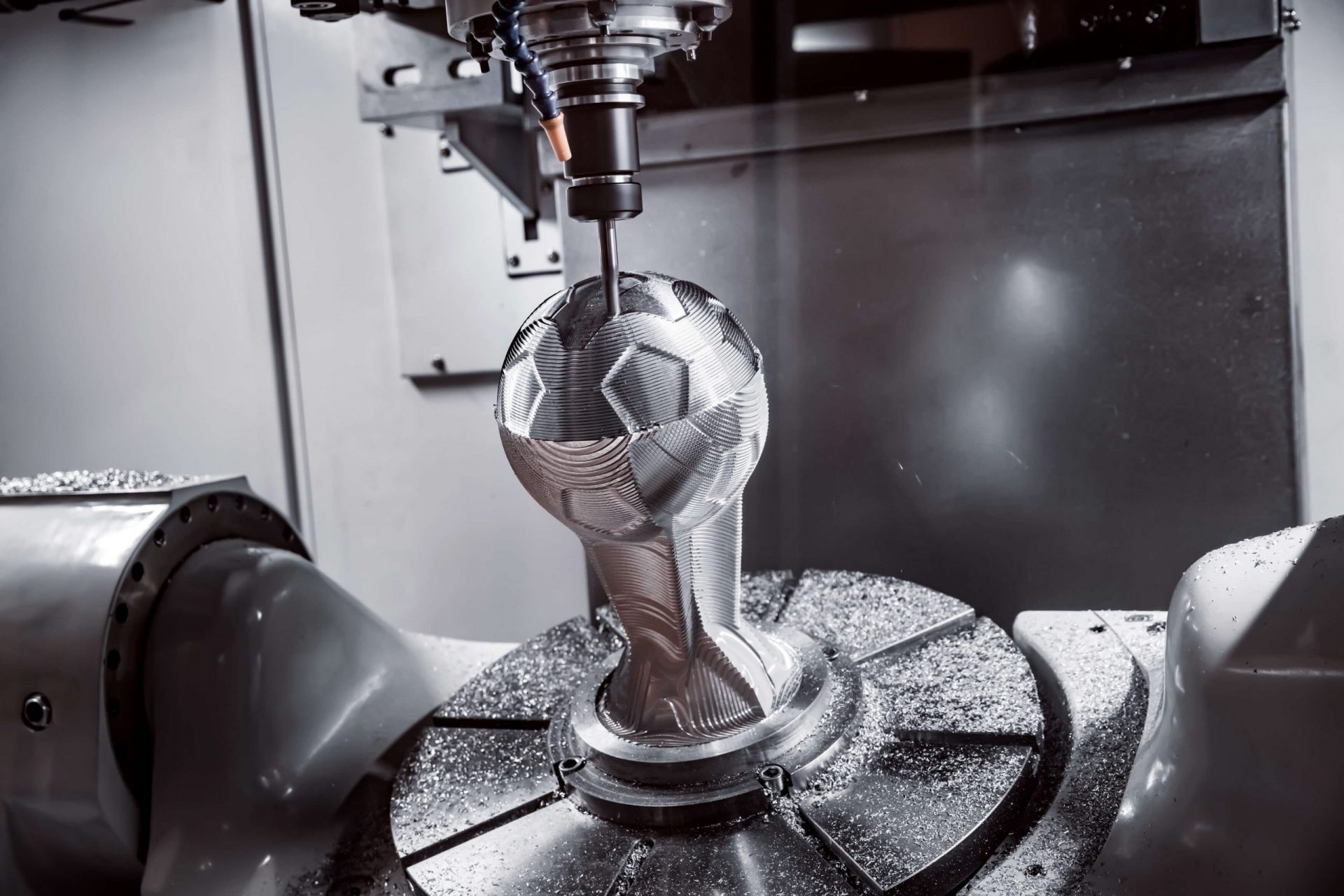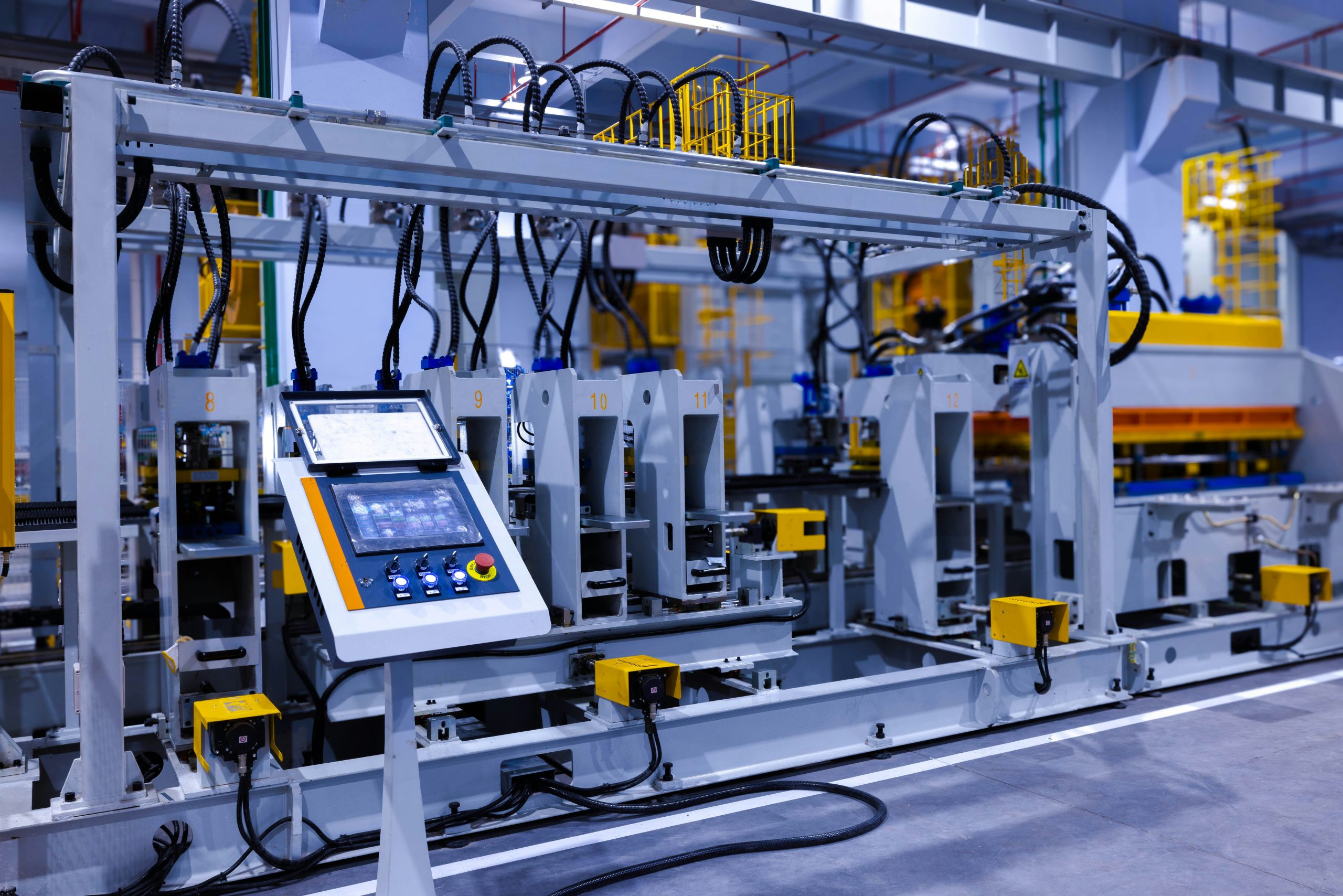Boost Your Manufacturing Quality With Professional CNC Machining Providers in Milling and Transforming
CNC machining solutions in milling and turning offer significant advantages for manufacturing operations. These procedures assure precision and performance, crucial for creating top quality components. With innovative innovation and proficient machinists, services can accomplish elaborate designs and premium coatings. Understanding the nuances of these solutions is essential for optimizing their advantages. What factors should companies think about when choosing the best CNC machining partner?
Comprehending CNC Machining and Its Advantages
Several making procedures exist, CNC machining stands out due to its accuracy and efficiency. This sophisticated production method utilizes computer-controlled makers to generate elaborate get rid of marginal human treatment. By automating the machining process, it considerably minimizes the probability of human mistake, making sure constant quality across production runs
CNC machining offers many benefits that interest various sectors. To start with, it accommodates intricate styles that conventional methods may have a hard time to attain. Furthermore, the rate of production is enhanced, permitting for quicker turn-around times and increased outcome. Additionally, CNC machining is functional, appropriate for a large range of materials, including metals, plastics, and composites.
The process permits for very easy changes, allowing quick prototyping and personalization without comprehensive retooling. Consequently, services can respond quickly to market needs, making CNC machining a crucial part of modern-day production methods.

The Importance of Accuracy in Milling Processes
Precision is important in crushing processes, as it straight affects the accuracy of the final item. The selection of materials also plays a considerable duty, affecting just how well the machining process meets defined tolerance criteria. Comprehending these aspects is necessary for achieving optimal lead to CNC machining.
Duty of Precision
Accomplishing high degrees of accuracy is important in grating processes, as also the tiniest discrepancy can lead to considerable mistakes in the last item. Accuracy in CNC machining directly influences the performance, capability, and longevity of the made elements. Precise grating assurances that dimensions and resistances are satisfied, which is crucial for components that should fit with each other effortlessly in setting up or run under certain conditions. In addition, the role of precision prolongs to minimizing waste and revamp, thereby improving general manufacturing efficiency. Advanced CNC machines geared up with sophisticated software and tooling contribute to achieving the essential accuracy. By prioritizing accuracy in milling, suppliers can ensure top quality outcomes that fulfill strict sector criteria and customer expectations.

Product Option Impact
Product choice plays an important function in the milling process, influencing both the quality of the end product and the effectiveness of production. Different products display one-of-a-kind properties such as solidity, tensile toughness, and machinability, which straight impact the milling strategy used. As an example, harder products might need specific devices and slower feed rates to avoid device wear and maintain precision. On the other hand, softer products can be milled at higher rates yet may do not have toughness. Furthermore, the selection of product can influence surface area finish and dimensional accuracy, demanding mindful factor to consider by makers. Inevitably, selecting the proper product not just boosts product efficiency but likewise optimizes the milling procedure, lowering waste and improving general productivity.
Tolerance Requirements Significance
While the choice of materials is crucial, adherence to tolerance standards is equally essential in CNC machining processes. Resistance standards determine the permitted limitations of variant in measurements, making sure components fit and function appropriately. In milling and transforming procedures, accurate resistances enhance item high quality, minimize waste, and minimize rework. When tolerances are precisely maintained, suppliers can attain constant outcomes, which is critical for sectors such as aerospace, automotive, and medical gadgets, where accuracy is critical. Deviations from established requirements can lead to setting up issues, endangered performance, and raised costs. Understanding and executing correct resistance criteria is basic for any CNC machining service looking for to maintain high production quality and meet customer specifications properly.
Enhancing Effectiveness Through Advanced CNC Transforming
Advanced CNC turning techniques substantially improve effectiveness in element creation by making sure high precision in manufacturing. This boosted accuracy not only enhances the total high quality of the parts produced but likewise adds to minimized production time. As a result, makers can accomplish greater outcome while keeping rigorous top quality requirements.
Precision in Element Creation
CNC transforming innovation has actually transformed accuracy in part creation, allowing manufacturers to accomplish remarkable accuracy and effectiveness. Making use of computer-controlled lathes, this advanced procedure diligently forms products into elaborate styles, making sure limited resistances that satisfy requiring specifications. The automation inherent in CNC turning decreases human error, resulting in constantly top quality parts customized to specific demands. On top of that, the capacity to quickly modify digital layouts enables rapid iterations, enhancing the modification of components without sacrificing precision. As a result, sectors varying from aerospace to automobile advantage substantially from these innovations, as they can produce complicated geometries effortlessly. Eventually, CNC turning stands as a keystone of modern production, driving accuracy and dependability in part production.
Reduced Manufacturing Time

Key Technologies in CNC Machining
Many crucial technologies drive the performance and accuracy of CNC machining, allowing producers to generate intricate components with high precision. Central to these developments are Computer Assisted Style (CAD) and Computer Aided Manufacturing (CAM) software, which enhance the design-to-production process. CAD permits complex layouts to be developed and manipulated electronically, while camera translates these styles right into machine guidelines.
Additionally boosting precision are multi-axis machining facilities, which make it possible for reducing devices to relocate along several axes all at once, lowering the requirement for several setups - jig and fixture tooling. Furthermore, advancements in tooling products and finishes have improved toughness and performance, allowing for far better surface finishes and extended tool life
Automation technologies, consisting of robotics and intelligent software application, promote real-time tracking and changes throughout production, making certain uniformity and top quality. Collectively, these innovations not just enhance production capabilities however also add to the general reliability of CNC machining solutions.
The Duty of Knowledgeable Machinists in High Quality Production
Proficient machinists play a vital function in guaranteeing the top quality and accuracy of CNC machining production. Their knowledge directly impacts the outcome of manufacturing processes, as they translate technological illustrations, established machines, and choose proper devices for every task. By possessing a deep understanding of machining concepts, they can make real-time modifications to optimize performance and maintain limited tolerances.
Skilled machinists use their problem-solving capabilities to recognize and correct issues during production, avoiding flaws and making certain that the final products meet strict quality requirements (cnc milling services near me). Their experience with various products and machining strategies permits them to adapt to diverse project demands, enhancing overall performance
On top of that, these experts frequently team up with engineers and designers, supplying valuable understandings that contribute to the continual renovation of production techniques. Inevitably, the importance of skilled machinists in CNC machining can not be overemphasized, as they develop the backbone of premium manufacturing procedures.
Reducing Waste and Optimizing Resources
Efficient CNC machining not just counts on the experience of proficient machinists yet also emphasizes the significance of lowering waste and optimizing sources throughout the manufacturing process. By utilizing sophisticated modern technologies and precise shows, manufacturers can lessen product waste, making certain that every item of resources is utilized efficiently.
Incorporating strategies such as nesting, where parts are organized to make the most of product usage, can especially decrease scrap manufacturing. Additionally, real-time monitoring of maker cnc turning service performance permits immediate modifications, preventing overflow and resource deficiency.
Applying sustainable techniques, such as recycling metal shavings and using environmentally friendly materials, contributes to both price savings and ecological duty.
Via these steps, CNC machining services can boost productivity while maintaining premium criteria, eventually resulting in an extra sustainable and successful procedure. By prioritizing source optimization, services can attain better effectiveness and a minimized environmental footprint in their manufacturing processes.
Picking the Right CNC Machining Solution for Your Requirements
How does one figure out the most effective CNC machining service for certain project demands? Choosing the ideal CNC machining solution entails numerous vital factors to consider. Job specs, including product resistances, kinds, and measurements, need to be clearly specified. This ensures that the selected solution can satisfy the technological demands of the job.
Second, assessing the provider's competence and experience in the pertinent sector can give understandings into their capacities. Taking a look at previous tasks and customer testimonials can further inform the choice.
Third, examining the readily available innovation and equipment is vital, as sophisticated devices commonly results in greater precision and effectiveness.
Ultimately, expense and turnaround time ought to be thought about to assure the service aligns with budgetary restraints and due dates. By meticulously assessing these elements, services can recognize the CNC machining service that ideal fits their unique production demands.
Regularly Asked Questions
What Materials Can Be Used in CNC Machining?
CNC machining can utilize a variety of products including metals like titanium, steel, and light weight aluminum, along with plastics such as acrylic and nylon, and compounds, providing versatility for different production applications and markets.
How much time Does a Typical CNC Machining Job Take?
A typical CNC machining project can take anywhere from a few days to a number of weeks, relying on factors such as complexity, material type, style specs, and production quantity. Timelines differ based on project demands and seriousness.
Are CNC Machining Provider Eco-friendly?
CNC machining services can be ecologically friendly, especially when making use of sustainable materials and efficient procedures. Waste reduction and energy-efficient machinery add to a reduced ecological effect, making these solutions a feasible alternative for eco-conscious manufacturing.
What Industries Typically Utilize CNC Machining Solutions?
CNC machining solutions are frequently used in various markets, consisting of auto, aerospace, electronic devices, clinical devices, and manufacturing. These fields depend on accuracy machining for parts that need high accuracy, performance, and repeatability in production procedures.
How Can I Prepare My Designs for CNC Machining?
To prepare styles for CNC machining, one ought to guarantee proper data styles, enhance measurements for resistance, integrate needed machining features, and take into consideration product homes. Additionally, giving thorough paperwork can improve the production procedure's performance and precision.
While the option of materials is vital, adherence to resistance requirements is equally essential in CNC machining processes. Skilled machinists play a vital function in ensuring the high quality and precision of CNC machining manufacturing. A common CNC machining job can take anywhere from a couple of days to a number of weeks, depending on factors such as complexity, material kind, style specifications, and production quantity. CNC machining services can be environmentally pleasant, especially when making use of lasting materials and efficient procedures. To prepare styles for CNC machining, one should ensure correct documents styles, enhance dimensions for resistance, integrate essential machining features, and consider material homes.